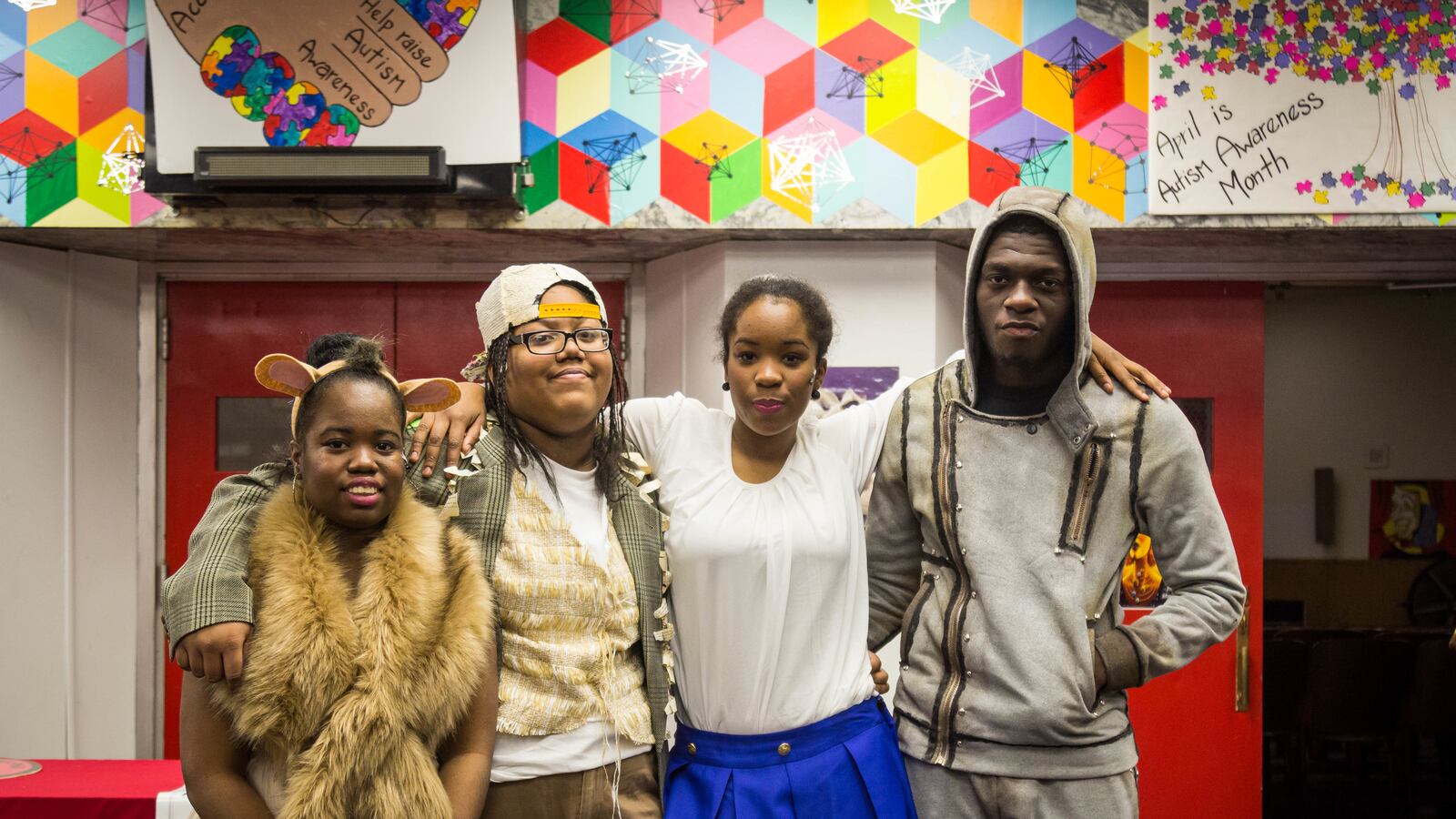This article was originally published in The Notebook. In August 2020, The Notebook became Chalkbeat Philadelphia.
https://www.youtube.com/watch?v=E_L58Zba90w The video above about The Wiz at South Philly High was produced by The Notebook and PhillyCAM. "Music, to me, is like breathing air." — Davia Blair, one of two Dorothys in the South Philadelphia High production of The Wiz
South Philadelphia High School once had a storied music program that graduated such stars as Marian Anderson, Chubby Checker, Mario Lanza, Fabian, Frankie Avalon, and members of symphony orchestras. Music was part of the fabric of the place.
But things changed. Whites and the middle class fled the neighborhood, and immigrants moved in from all over the world. Magnet and charter schools, including several focused on the arts, siphoned off students. Neighborhood schools like Southern, as it’s known, became schools for kids who didn’t have other options. The building can hold 2,500 students, and it now has fewer than 600. The graduation rate is 50 percent.
With all this change came disinvestment in Philadelphia schools, mostly by the state. Beleaguered District leaders and principals started cutting out virtually everything beyond the basic academics – counselors, nurses, the arts. For a time, music no longer had a place at South Philadelphia High.
That started to change two years ago, when a young music teacher from New York named Louis Russo moved to Philadelphia at the same time that then-principal Otis Hackney decided it was time to rebuild Southern’s music program. Russo got job offers from more selective schools. But he learned the history of South Philly and decided that was where he wanted to be.
"I knew it was going to be hard, and plenty of people [said] ‘are you sure you want to take that job?’ And I chose this because I really did want to take that job," Russo said. "I’m resistant to the narrative of, like, South Philly is a bad place. ‘Cause that narrative is damaging. I wanted to resist it."
Hackney soon moved on to be Mayor Kenney’s education adviser, but new principal Kimlime Chek-Taylor was just as determined to bring music back to Southern.
"Music shouldn’t be a choice, it should be a given," Chek-Taylor said. Under Russo, with the help of two itinerant instrumental music teachers, Southern now has a choir, a drumline, a winds and brass ensemble, and a modern band. With limited funds for extracurriculars, "Mr. Russo has generously donated his time," Chek-Taylor said, to give private lessons during recess, lunch and after school.
"It’s a hard job," he said, "but all the silly things they say about teaching being rewarding are certainly true."
Tackling a full-fledged musical, though, was due to the initiative of Curtis Institute graduate Alize Rozsnyai, a fellow with Artist Year, an initiative to bring art and music to underserved communities. Last year, the school staged Dreamgirls; this year, The Wiz.
An operatic soprano from San Diego, Rozsnyai put her career somewhat on hold and spent not one, but two years at Southern. She fell in love with the school and its students, celebrating their achievements and their valiant efforts to deal with what life has thrown at them.
"I grew up in a pretty conservative area and I wasn’t exposed to really any of the challenges they face," she said. "Particularly last year, everything was a shock and a learning experience."
Students would drop in and out of the cast, drop in and out of the school. They would shuttle between family members. They would couch surf. They would have to get a job or take care of siblings. They wouldn’t have enough to eat.
"It’s really hard not being able to solve all the problems you hear about," she said. "I feel very fortunate to be able to help them in any way I can. I go home a lot of nights and I get very upset knowing that I can’t make all their problems better."
Rozsnyai directed and choreographed the entire show, working with a shifting cast, most of whom took on multiple roles. Special education students were welcome, and two participated.
"I learn so much from my students every day," Rozsnyai said.
The production was staged on May 11 for middle schools that feed students to Southern, and May 12 and 13. Students from the University of the Arts worked backstage on makeup and costumes and stage management. People from City Life church did the lights and sound.
On that Friday night, a contingent from Southern’s active alumni association came to see the production. Richard DiAmato, a 1962 graduate and violinist who had a long career with the Pittsburgh Symphony, presented the school with a check for $5,000. The class of 1966 donated $2,000 in connection with their 50th reunion. The Picasso Project of Public Citizens for Children & Youth, which gives grants to schools for arts programming, also gave $5,000.
All cited the importance of giving all students a well-rounded education that includes the arts. The School District and Superintendent William Hite are trying to find money to restore art and music programming that was cut and make sure all students have equitable access.
"You look at the priorities of this area and of this country in times past and you think, ‘Why is this so different now? Why is art so much less important to this school now, to this country, to this president?" said Rozsnyai. "It’s awful to think about. It’s sad. It’s disappointing. It says to me that it’s so important that we’re here trying to keep music and art alive because that’s really what grounds people. It helps them through their days.
"It’s a real shame that the school has changed so much. I have faith going forward that the music program will continue to grow and get better."
Check out the video above.


